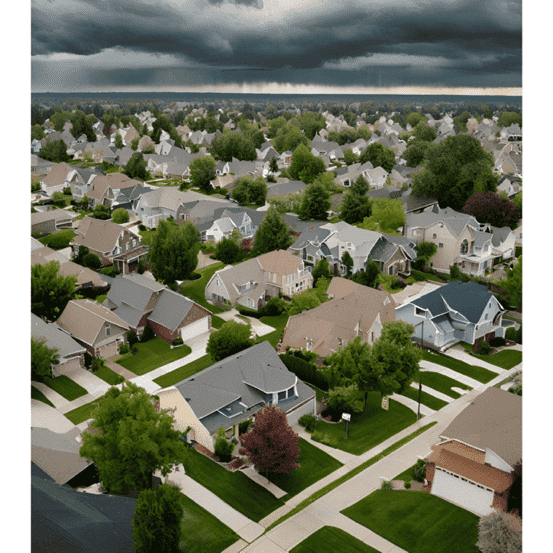France’s Real Estate Tax Surge: New Surcharges for Second-Home Owners
As autumn arrives, second-home owners in France face significant taxe foncière increases due to new surcharges in 1,500 communes. Prepare now.
As the leaves begin to turn and autumn settles in, property owners across France are bracing for the arrival of their taxe foncière bills. This year, the landscape of property taxation is shifting dramatically, particularly for those who own second homes in some of the country's most desirable locales. With approximately 1,500 communes now poised to implement new surcharges, many second-home owners could see their tax bills rise significantly.
Understanding the Taxe Foncière and Taxe d'Habitation
The taxe foncière is France's primary property tax, levied on property owners annually. This tax is calculated based on the estimated rental value of the property and is used to fund local services such as schools, roads, and public safety. In recent years, the French government has made significant changes to the taxe d'habitation, a tax traditionally applied to all residences, which has now been phased out for primary residences but remains applicable to second homes.
Since 2023, the taxe d'habitation has been exclusively charged on second homes, and recent legislative changes have expanded the number of communes that can impose an additional surcharge. This surcharge can be as high as 60% of the main tax bill, a substantial increase that has raised concerns among property owners.
The Surge in Surcharges: A Closer Look
The recent changes to property tax legislation were authorized in August 2023, allowing local authorities to impose surcharges in areas deemed to be experiencing a housing shortage. Previously, communes had to meet specific criteria, including a minimum population threshold of 50,000, to qualify as a zone tendue (housing shortage area). However, this population limit has been lifted, enabling thousands of smaller communes, particularly those popular with second-home owners, to levy the surcharge.
This year, around 1,500 communes have opted to implement the surcharge, a significant increase from just 300 last year. Notable second-home destinations such as Saint-Tropez, Chamonix, and Saint-Malo are among those now imposing these additional charges. In Brittany, for instance, approximately 75% of eligible communes have chosen to implement the surcharge, reflecting the region's high rate of second-home ownership, which stands at 12% overall and nearly 70% in some coastal areas.
The Rationale Behind the Surcharge
One of the primary reasons many communes are opting to levy this surcharge is the local control it affords them over tax revenues. Unlike many other taxes that are distributed by the central government, the taxe d'habitation is collected locally, allowing communes to allocate funds directly to services that benefit their residents. This local autonomy is particularly appealing in areas where housing shortages are acute, as it enables local governments to address pressing needs such as infrastructure improvements and community services.
Impact on Second-Home Owners
For second-home owners, the implications of these new surcharges can be significant. Depending on the location of their properties, many may see their tax bills rise sharply. This increase can be particularly burdensome for those who own multiple properties or who have invested in areas that are now classified as housing shortage zones.
In popular tourist destinations, where property values have surged in recent years, the additional financial burden may lead some owners to reconsider their investments. The potential for increased taxation could deter future buyers, impacting the real estate market in these regions.
Local Reactions and Future Implications
Local authorities have expressed mixed feelings about the new surcharges. While many see it as a necessary step to address housing shortages and fund local services, others worry about the potential backlash from second-home owners. In regions heavily reliant on tourism, there is concern that increased taxes could drive away visitors and investors, ultimately harming the local economy.
As the tax bills begin to roll out, property owners are urged to review their assessments carefully. Those who believe their tax bills are incorrect or excessively high may have the option to appeal, although the process can be complex and time-consuming.
The recent changes to France's property tax landscape signal a significant shift in how second homes are taxed, particularly in areas facing housing shortages. With around 1,500 communes now eligible to impose surcharges on the taxe d'habitation, many second-home owners may find themselves facing increased financial pressure. As local authorities navigate the implications of these changes, the balance between generating revenue for local services and maintaining a vibrant real estate market will be crucial. Property owners should stay informed and proactive as they adapt to this evolving taxation environment.
France’s Real Estate Tax Surge: New Surcharges for Second-Home Owners
Greece: Europe’s Fourth Cheapest Real Estate Market
Greece: Europe’s Fourth Cheapest Real Estate Market
Explore why Greece stands out as one of Europe’s most economical real estate markets, attracting savvy investors seeking value and opportunity.

Surge in Scottish Home Sales: UK Real Estate Update
Surge in Scottish Home Sales: UK Real Estate Update
Scottish home sales and enquiries surged in October, with a third of surveyors reporting the fastest growth in years, signaling a vibrant market.

Spain: A Leading Market in European Real Estate
Spain: A Leading Market in European Real Estate
Explore how Spain is becoming one of Europe's most promising real estate markets, excelling in retail, logistics, and hotel sectors for strategic growth.

Greece Real Estate Market: Rise of Serviced Apartments
Greece Real Estate Market: Rise of Serviced Apartments
Explore the growing demand for serviced apartments in central Athens, where integrated hospitality services attract savvy investors in the Greece real estate market.

Home Prices Hit by Climate Change, J.P. Morgan Warns
Home Prices Hit by Climate Change, J.P. Morgan Warns
J.P. Morgan analysts reveal a negative link between climate risk and home price appreciation. Explore the emerging trends and their impact.


